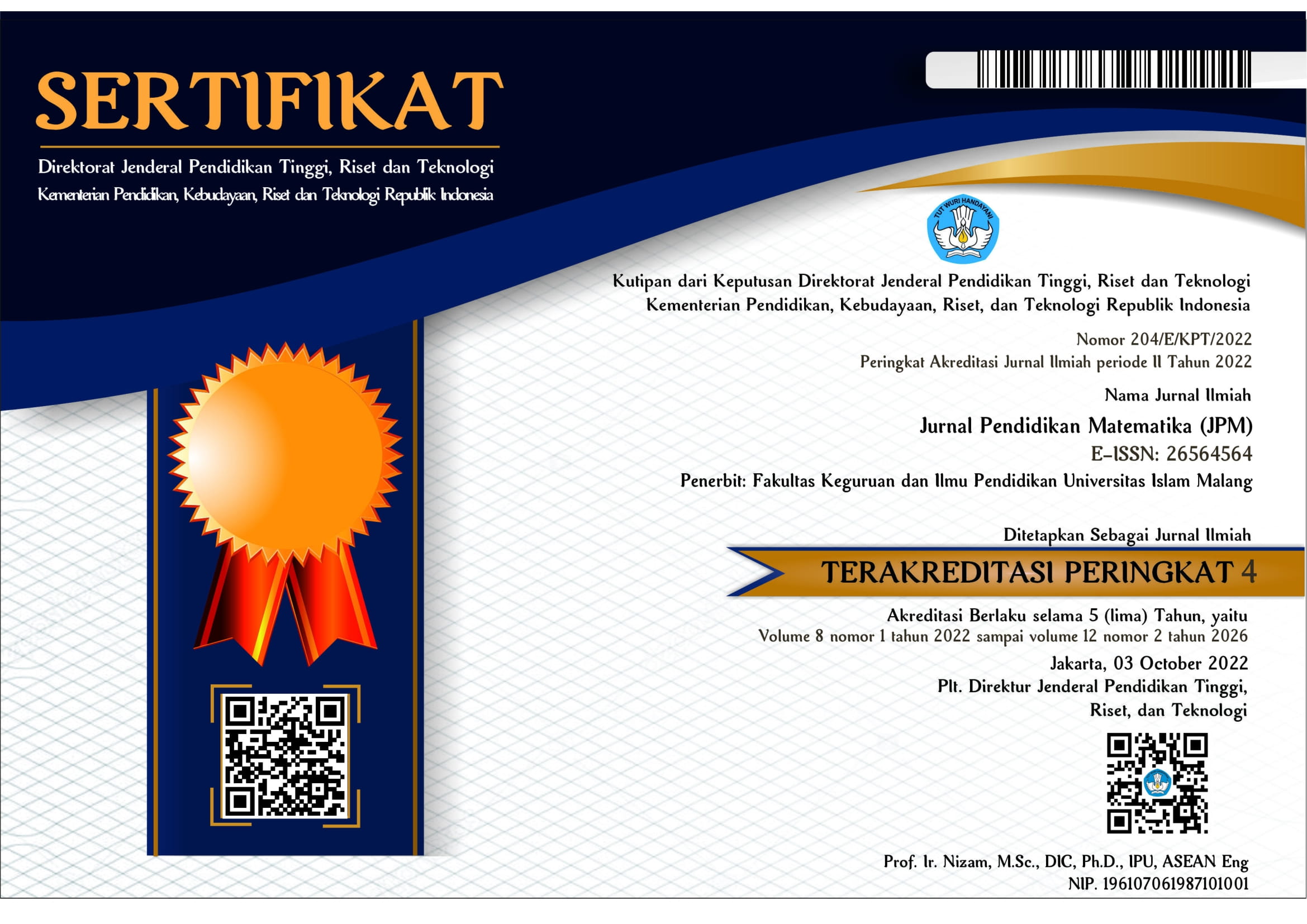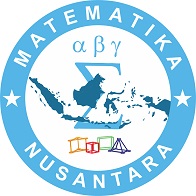KEMAMPUAN PENALARAN MATEMATIKA SISWA MELALUI MODEL PEMBELAJARAN CORE AND PAIRS CHECK (CPC) PADA MATERI STATISTIKA SISWA KELAS XI MA MA’ARIF NU JENGGAWAH
DOI:
https://doi.org/10.33474/jpm.v5i1.2629Keywords:
reasoning abilities, CPC models, mathematics, statistical materialAbstract
The purpose of this study was to determine the differences in mathematical reasoning abilities of students in class XI on statistical material through the CPC learning model and conventional models and describe the results of analysis of mathematical reasoning abilities of class XI students through CPC learning models and conventional models on statistical material. This study was a mixed method with a sequential explanatory design. The sample from this study was XI IPA 1 and XI IPA 2 MA Ma'arif NU Jenggawah. While the subject of qualitative research was 6 students from the experimental class and the control class students selected based on high, medium, and low reasoning abilities. Data collection is done by test, observation, field notes and interviews. The analysis technique uses prerequisite tests, namely t-test and qualitative descriptive. Based on the results of quantitative research, using SPSS 16 software obtained Sig = 0,000 <0,025 so that it was rejected, meaning that there was a significant difference between mathematical reasoning abilities of the experimental class students using CPC models and control classes using conventional models in statistical material. While the qualitative analysis shows that based on the results of interviews on experimental class subjects, an average of 88% of students have fulfilled five reasoning indicators while in the control class only 56% of students meet the five indicators of mathematical reasoning.References
Arikunto, S. (2010). Dasar-dasar Evaluasi Pendidikan. Jakarta: Bumi Aksara.
Lestari, K. E., & Yudhanegara, M. R. (2015). Penelitian Pendidikan Matematika. Karawang: PT Refika Aditama.
Shadiq, F. (2004). Pemecahan Masalah, Penalaran dan Komunikasi. Disampaikan pada Diklat Instruktur/Pengembangan Matematika SMA Jenjang Dasar Tanggal 6 s.d 19 Agustus 2004 di PPPG Matematika. Guru (PPPG) Matematika Yogyakarta. Pendidikan Dasar dan Menengah Pusat Pengembangan Penataran Yogyakarta: Departemen Pendidikan Nasional Direktorat Jenderal.
Shoimin, A. (2014). 68 Model Pembelajaran Inovatif dalam
Kurikulum 2013. Yogyakarta: Ar-Ruz Media.
Sudjana, N. (2009). Penilaian Hasil Proses Belajar Mengajar. Bandung: PT. Remaja Rosdakarya.
Sugiyono. (2015). Metode Penelitian Kombinasi (Mixed Methods), Bandung: Alfabeta.
Sugiyono. (2015). Metode Penelitian Pendidikan. Bandung: Alfabeta.
Sukirwan. (2008). Kegiatan Pembelajaran Eksploratif untuk Meningkatkan Kemampuan Penalaran dan Koneksi Matematika Siswa Sekolah Dasar. Tesis. Bandung: UPI. Tidak diterbitkan.
Suyatno. (2009). Menjelajah pembelajaran Inovatif. Sidoaarjo: Masmedia Pustaka.
Wardhani, S. (2008). Paket Fasilitasi Pemberdayaan KKG/MGMP Matematika. Yogyakarta: PPPPTK Matermatika.






_-_Copy.jpg)
.jpg)
.jpg)










